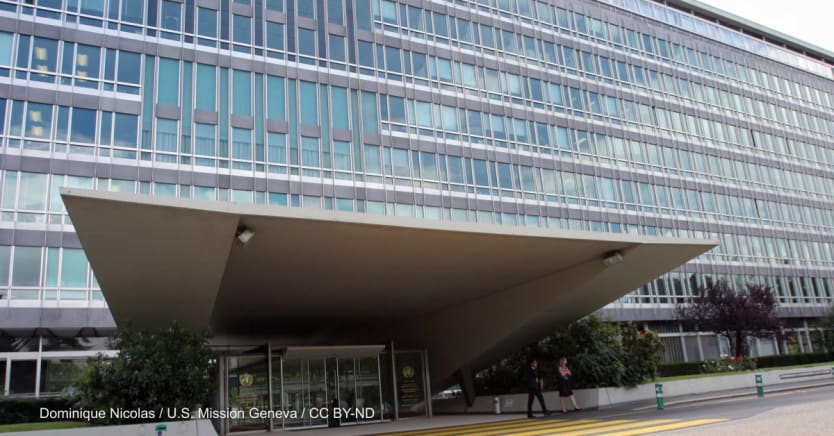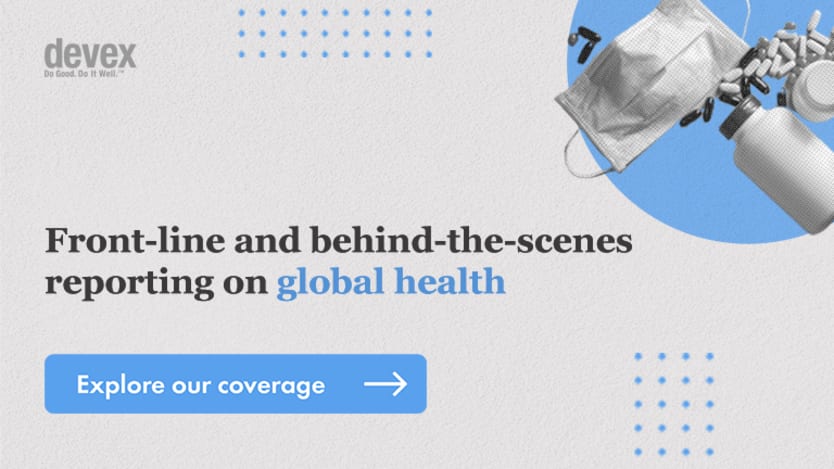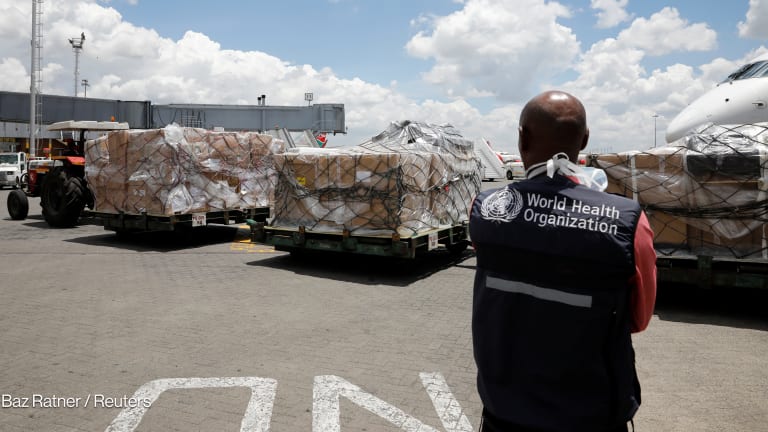
Sign up for Devex CheckUp
The must-read weekly newsletter for exclusive global health news and insider insights.
This week, countries will be debating a contentious proposal to increase their dues to the World Health Organization by over $1 billion by 2029.
“Member states are hesitant to put more taxpayers’ funding into international organizations, and that's understandable,” Björn Kümmel, deputy head of the global health division at Germany’s Federal Ministry of Health and chair of the WHO Working Group on Sustainable Financing, said in a press briefing Friday.
But as Kümmel has repeatedly pointed out, countries need to align their expectations of the WHO with more sustainable and predictable financing.
Last chance for WHO funding reform, lead diplomat warns
Björn Kümmel says he is sick of delay tactics standing in the way of an increase in membership fees to the U.N. health agency.
“I'm also sometimes comparing this whole exercise to us [member states] ordering a meal. It seems as if member states are ready to order a five-dish meal. However, they only come and are willing to pay for the salad, and the rest should be paid by someone else,” he said.
The working group has met four times since its establishment in January 2021 to discuss and explore ways to address issues with WHO’s current budget makeup. This week’s meeting, which will run from Dec. 13 to 15 and is not public, will be its fifth. The organization is heavily dependent on highly earmarked, voluntary contributions, which make up over 80% of its budget. This leaves the organization with an unbalanced budget portfolio, with some areas chronically underfunded.
Multiple experts, including the the Independent Panel for Pandemic Preparedness and Response, have called for member states to increase their assessed contributions to the organization, which currently cover just 16% of its total budget.
WHO’s total budget for 2022 to 2023 is over $6 billion. Its base budget — which supports the core work of the organization, including staffing — is $4 billion of that total. Assessed contributions meanwhile, which are flexible and predictable, account for less than $1 billion of that amount.
The group’s draft report is recommending a gradual increase, starting in 2024, that would lead to assessed contributions covering 50% of WHO’s core budget by 2029. Kümmel said the decision to recommend the increase to begin in 2024 was to allow member states time to prepare. Many of them are also currently dealing with huge financial constraints due to the COVID-19 pandemic.
“It seems as if member states are ready to order a five dish meal. However, they only come and are willing to pay for the salad, and the rest should be paid by someone else.”
— Björn Kümmel, deputy head of the global health division at Germany’s Federal Ministry of Health and chair of the WHO Working Group on Sustainable FinancingThe working group, however, is also recommending that member states also explore the idea of a replenishment model to secure long-term predictable funding for the organization. Kümmel clarified that the replenishment idea is an addition, and not an alternative, to the proposed increase in assessed contributions. Member states should also make their financing flexible and unearmarked.
The financing proposals, however, should also be linked to “bold governance reforms” of the organization, Kümmel said.
The working group’s proposal should be seen as a “package deal,” Kümmel said. An increase in assessed contributions “will not fly” without clarifying the governance reforms, and if countries do not provide flexible funding to the organization.
This week’s meeting, however, is one part of the process. The report will be taken up to the WHO executive board meeting in January, and any final decision will take place at the World Health Assembly in May.
“We will have challenging debates. But I think we all share the commitment for this great organization. It's not perfect, but we have to make it obviously better,” Kümmel said.









